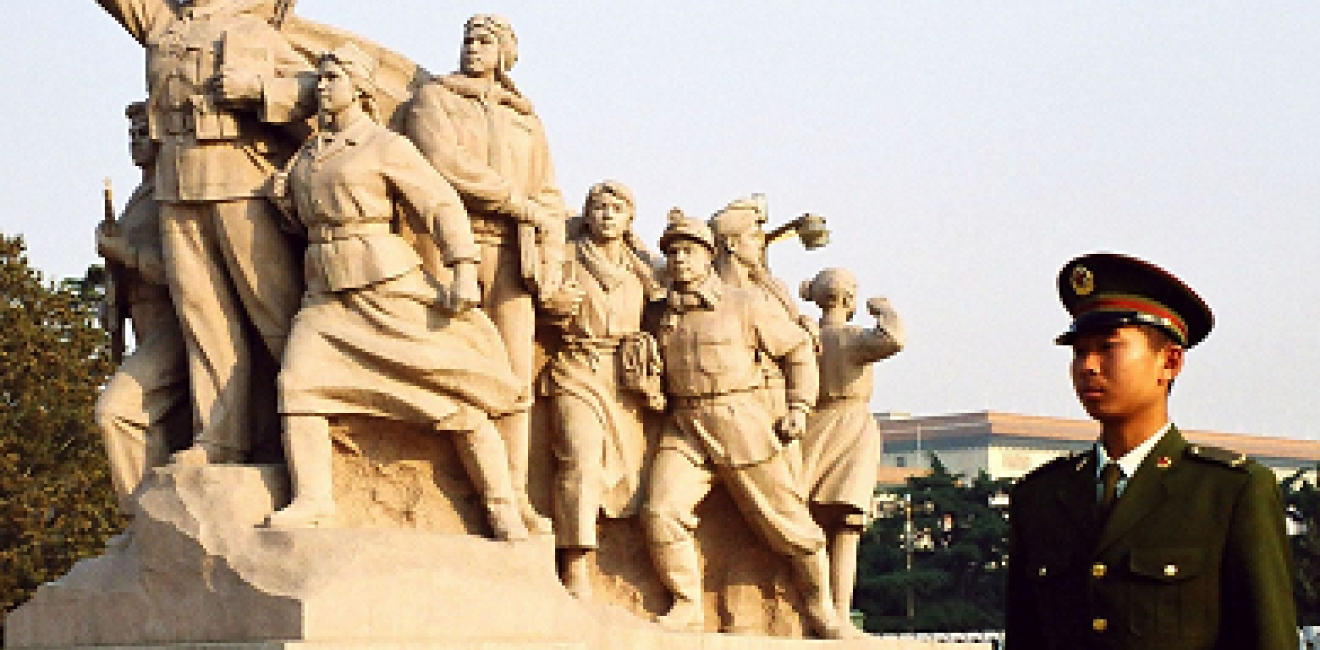Xi Jinping, ‘Rule by Fear?’
KICUS Director Robert Daly joins the ChinaFile conversation on whether Xi Jinping rules by fear.
KICUS Director Robert Daly joins the ChinaFile conversation on whether Xi Jinping rules by fear.

This piece was originally published on ChinaFile.
Fear has been spreading in key segments of Chinese society for at least two years. Journalists, creative types, academics, and think tank experts are more circumspect than they’ve been since 1989. This is the fruit of the anti-corruption campaign and the broad ideological crackdown that the CCP is using to assert its control over Chinese minds and institutions.
At a January Politburo meeting, Xi Jinping said, “the Party leads all affairs—Party, political, military, civil, and academic—east, west, south, north, and center (党政军民学,东西南北中,党是领导一切的). He was boasting about state power and issuing a warning to all who might oppose it. A national propaganda campaign is now amplifying and refining Xi’s declaration with a new slogan: “Resolutely protect General Secretary Xi Jinping as the Core” (坚决维护习近平总书记这个核心).
The Party is all, Xi is the Core of the Party—that’s the formula. It’s not L’état, c’est moi, yet, but it’s getting there. No wonder independent-minded Chinese are nervous.
Zhang Taisu dismisses the Pils/Pei thesis because the victims of Xi’s crackdown are a small minority and most Chinese neither know nor care about prisoners of conscience. Zhang may be right about the attitudes of most Chinese, but he is certainly mistaken in claiming that, “first and foremost, the anti-corruption campaign against officials does not belong in the same category as the prosecution of rights lawyers, or increased pressures on NGOs.” All of Xi’s campaigns are intended to maximize the Party’s control of China. Control is the category that links anti-corruption, imprisonment of lawyers, and suspicion of NGOs. The Party is controlled under the anti-corruption banner, society is controlled through crackdowns on expression and association, culture is controlled through demands that art serve the state, education is controlled though censorship of classroom discussion and enhanced patriotic education.
Despite Xi’s various campaigns, “rule of fear” doesn’t (yet) capture the prevailing tone in the People’s Republic and the phrase is inapt as a broad analysis of China. Better to say that alarm over the implications of Xi’s governance is growing, even as most Chinese go about their usual business. China’s cities still bristle with ambition and energy: grannies dance, entrepreneurs strike deals, hipsters strike poses, and pride in China’s resurgence abounds. The people—and the Party, as Xiao Qiang helpfully points out—may be fearful, but China’s confidence is real as well.
Pei argues that Xi’s goals and methods “should be triggering alarm bells in the West...With China’s international influence growing by the day, the revival of totalitarian scare tactics there has far-reaching—and deeply unsettling—implications for Asia and the world.” True. The last time China had a domineering, charismatic leader who required bureaucrats and diplomats to embody the belief system of the party-state, China was isolated from the rest of the world and the pain was felt primarily within China’s borders. What are the international implications of a Chinese leadership that views its authority as all-encompassing and self-justifying, but that is deeply engaged with the rest of the world and has the will and ability to influence international norms and to shape global standards for the treatment of individuals and information?
It’s an urgent question, regardless of whether China is ruled through confidence or fear.


The Kissinger Institute works to ensure that China policy serves American long-term interests and is founded in understanding of historical and cultural factors in bilateral relations and in accurate assessment of the aspirations of China’s government and people. Read more



